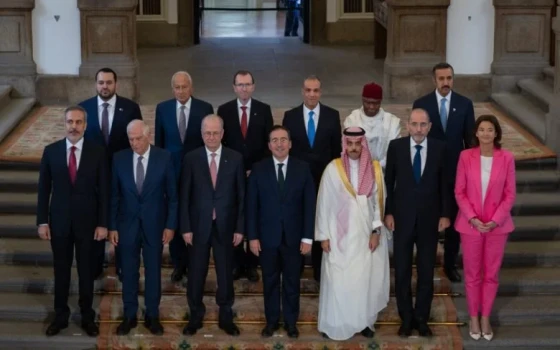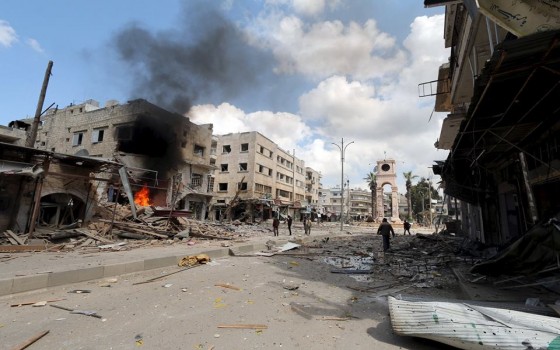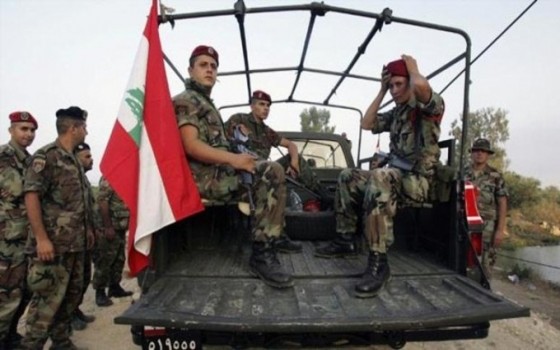
Borrell before the Arab-European ministerial meeting: What I saw on the Rafah border is one thing and the news we receive is another.. Pressure continues for the forced displacement of Palestinians to the West Bank or Sinai

- Europe and Arabs
- Saturday , 14 September 2024 11:48 AM GMT
Brussels: Europe and the Arabs
In front of the coordination ministerial meeting to discuss the situation in the Gaza Strip, which was held in the Spanish capital, Madrid, in preparation for the New York meetings, Josep Borrell, the European Union's foreign policy coordinator, said that recognizing Palestine as a state or not is a national right of the member states of the Union. Some have done so, and others have not. There is no doubt that what enjoys consensus in the European Union is the need to support the solution based on building a Palestinian state. The State of Israel already exists, and it is a democratic and strong state - economically - and it also has a very important military capacity. .
According to a statement issued in Brussels, Borrell added, "The meeting aims to keep the possibilities of reaching this solution alive. But to do that, you have to take several steps. First, the ceasefire, which is still being negotiated indefinitely. If not today, it will be tomorrow. Or the day after. We will see. And there is little hope that it can be achieved in the short term, according to the information I have.
But that does not prevent us from continuing to work to achieve, first, providing aid to the people of Gaza, and continuing to demand the release of the hostages. But also continuing to reach a political solution in the right perspective. Although it is clear that the government - this government of Israel - refuses to do so.
And we have to build as much international consensus as possible.
We are living in a situation in the Middle East that is on the verge of a problem, and I will not say that it is more serious, because what is already there is serious enough. The situation in Gaza is already serious to the point that we do not believe that anyone else is capable of doing this anymore, but its extension to the region remains a possibility.
We begin by strongly condemning the terrorist attack launched by Hamas. And you have to remember that Every time you take the floor to say it again. But what is happening in Gaza is a horror that is not justified by the horror that Hamas caused before; this horror does not justify another.
I visited a closed border crossing in Rafah, where we are negotiating the possibility of opening it in the presence of the mission that we displaced on the border more than 20 years ago.
It is one thing to tell it and another thing to see it. It is one thing to say that there are many trucks waiting, and another thing to see the endless line of more than 1,400 trucks on both sides of the road waiting to enter, sometimes waiting for weeks.
It is one thing to tell it, and another thing to see warehouses full of products rejected by border control, it is frankly shocking to see mountains of boxes of various types of materials. Some came from Singapore, some from Brazil, some from Norway, from European countries. Where there is everything, where there are medical first aid boxes rejected because there are some scissors from those used in pharmacies to cut the ribbon. Even water purification systems that are rejected for having carbon in them – and of course how will water be purified without carbon?
You see boxes and boxes of materials that are desperately needed by those a few kilometers away. Yet they are detained after a long journey and a long wait.
In Lebanon, as in the West Bank, there are now fears of greater pressures that could lead to a new migration of Palestinians – forced migration, of course – in the West Bank and Sinai.
This is the situation. I believe that the meeting in Spain was important in preparing for the UN meeting.
In the same context, Abdullah bin Ahmed Al Khalifa, Undersecretary of the Ministry of Foreign Affairs for Political Affairs of Bahrain, discussed with Josep Borrell, High Representative of the European Union for Foreign Affairs and Security Policy, bilateral relations and the strategic partnership between the Kingdom of Bahrain and the European Union, and ways to enhance cooperation to achieve common interests.
The Bahrain News Agency (BNA) reported that this came during their meeting on the sidelines of the ministerial coordination meeting to discuss the situation in the Gaza Strip in the Spanish capital, Madrid.
The meeting also discussed regional and international efforts to cease fire in the Gaza Strip, protect civilians, and facilitate the delivery of humanitarian aid, in addition to discussing the prospects for a just and comprehensive peace in the Middle East.
Jordanian Deputy Prime Minister and Minister of Foreign Affairs and Expatriates, Ayman Safadi, revealed that the meeting of representatives of the Joint Ministerial Contact Group on the Implementation of the Two-State Solution, which was held in Spain, aimed to mobilize more support for implementing the two-state solution as the only way to achieve a just and comprehensive peace.
Safadi said - in media statements, following the meeting in which he participated, along with members of the Arab-Islamic Ministerial Committee tasked with international action to stop the war on Gaza, and a number of European ministers and officials - that the meeting aims to prepare for the New York Conference in order to begin implementing a real process to implement the two-state solution.
Safadi continued, saying: "Our priorities are to stop the aggression on Gaza, stop the humanitarian catastrophe it is causing, stop the dangerous escalation and systematic attacks against Palestinians in the West Bank, and stop the regional escalation as well." He stressed that there is no way to guarantee security and peace except by establishing an independent, sovereign Palestinian state on the lines of June 4, 1967, with occupied Jerusalem as its capital, to live in security and peace alongside Israel. Safadi pointed out that Friday's meeting is part of the ongoing movement of the Arab-Islamic group and our partners from the European Union to overcome this catastrophe that has made international law and international humanitarian law lose their credibility.












No Comments Found